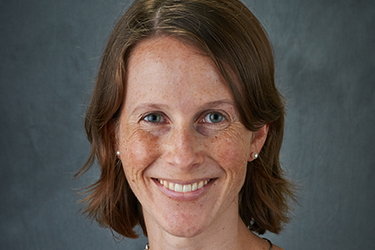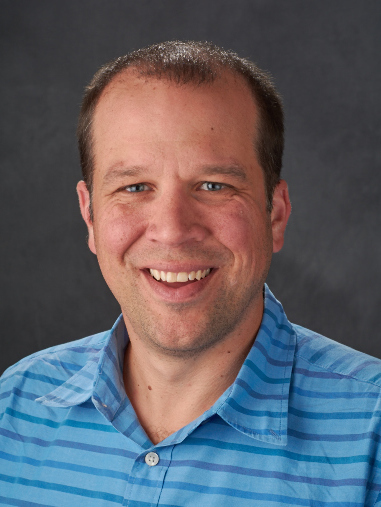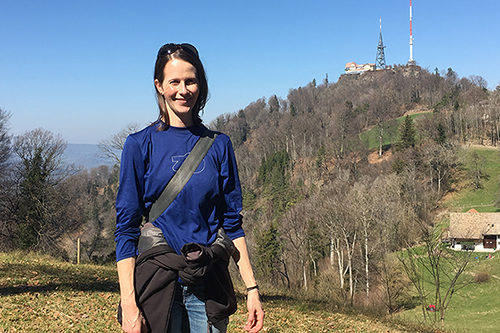
April 1, 2019
By Jennifer A. Smith
While University of Wisconsin-Madison Associate Professor Christina Remucal may be thousands of miles from home right now—she’s on sabbatical in Switzerland—she’s busy investigating an issue that has implications for the water that Wisconsinites drink every day.
Through funding from the Water Resources Institute, Remucal is studying the impact that the composition of dissolved organic matter has on the formation of disinfection byproducts in groundwater when that water is treated for use.
“This project is related to drinking water quality,” explained Remucal. “When we have treated drinking water, one of the most important steps is doing disinfection to inactivate pathogens like viruses and bacteria. Most utilities in the U.S. and in Wisconsin use chlorine for disinfection.”
While chlorine is highly effective, it also reacts with naturally present compounds that are found in all waters, and this can result in the formation of harmful chemicals called disinfection byproducts (DBPs). Some of these byproducts, such as chloroform, can be cancer-causing or otherwise detrimental to human health. It is a complex problem, and scientists have not identified all possible DBPs.
“It’s a trade-off when we disinfect our water,” said Remucal. “It means inactivating pathogens that will make us sick, and also forming these harmful compounds, which are of course regulated and generally present in low concentrations.”
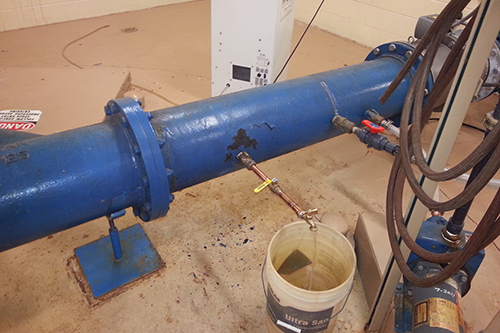
Remucal’s research will expand understanding of the chemical composition of dissolved organic matter (DOM) and how that composition can affect the types of disinfection byproducts that are formed during water treatment. While DOM is present in both groundwater and surface waters like lakes and rivers, its composition varies widely.
She’ll place a special focus on groundwater, which is the source of most drinking water in Wisconsin, and which is not well studied with regard to this issue. “We’re looking at dissolved organic matter in groundwater, and how that compares to surface water, and then we’re looking at how that organic matter—again in groundwater versus surface water—reacts with chlorine to form disinfection byproducts.”
The project was selected for Water Resources Institute funding in 2018 and runs through 2020. It is made up of three main stages. The first is collecting water samples from various Wisconsin water utilities and running analyses. Reid Milstead, a graduate student of Remucal’s in the Environmental Chemistry and Technology Program within the Department of Civil and Environmental Engineering, is assisting with this process, and the Wisconsin Rural Water Association has helped connect Remucal and Milstead with local water utilities.
“We’re using traditional chemical approaches, but we’re also using some really state-of-the-art high-resolution mass spectrometry approaches to look at dissolved organic matter,” said Remucal.
Phase two entails sorting through vast amounts of data and identifying trends that are related to water in Wisconsin, but are also more broadly applicable.
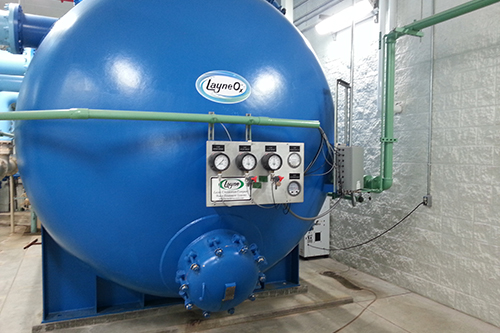
The third and final phase is an ambitious one that takes a predictive approach. “The direction we’re moving in is to be able to predict—if this is my water sample, and this is its basic chemistry—how big of a problem disinfection byproducts are going to be,” said Remucal.
She will share research results with organizations like the Wisconsin Rural Water Association and the Wisconsin section of the American Water Resources Association.
While Remucal is enjoying her sabbatical year in Switzerland (she completed a postdoc there and is now splitting her time between two research institutes), she likes knowing that her Water Resources Institute study will benefit Wisconsinites by furthering what we know about drinking water safety.
“The work we’re doing is pretty fundamental, and so it has broader implications for drinking water everywhere, but it’s also tied to the state of Wisconsin” through project partners and the water samples chosen, said Remucal. “It will answer some questions locally in Wisconsin, and it’s nice to have that aspect to it.”

